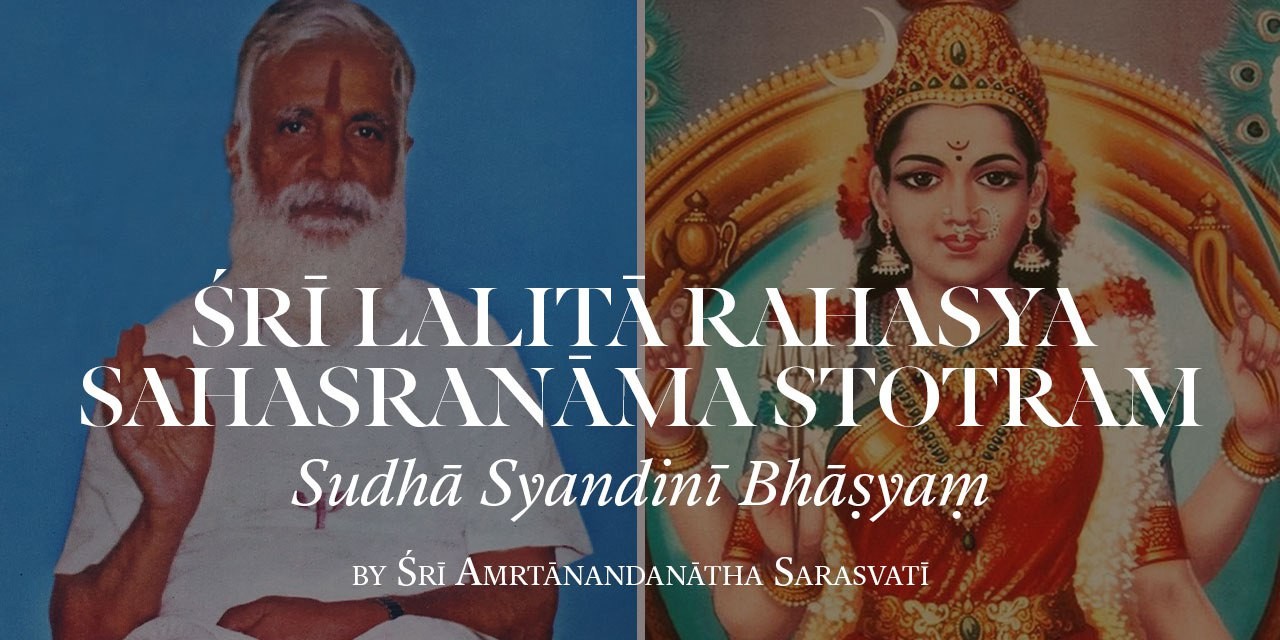
61) Sudhāsāgaramadhyasthā
Resides in the Ocean of Nectar.
Nectar is a symbol of sweetness and immortality. The sweetness refers to the aspect of enjoyment and the immortality refers to the aspect of transcending time. The Upaniṣads say “Sarvaṃ khalvidaṃ brahma”. The transient, temporal, the bounded in time, is also included in the definition of Brahman. The question arises: “Is the Upaniṣadic statement wrong, or is there an explanation for the following riddle - How can the transient and the time bound and temporarily limited come under the category of immortality?” The statement of the Upaniṣads that everything is Brahman and the most important characteristic of Brahman is that it is immortal. The notion of death is implied always in a time bound view of the universe. As long as one cannot see (experience) the past, the present and the future all at once the notion of death has a meaning. For the transcendental view which sees the past, the present and the future all at once, the notion of death loses its meaning. In such a view there is the possibility that there can be no death whatsoever of any state, be it transient or permanent. As an example, we might say that this page is born at the left hand bottom corner and died at the right hand top corner, if we limit ourselves to scanning the breadth of the page perpendicular to the line joining the two corners named above. As long as the view of an individual is limited by the scanning process of time, or under the illusory power of Kālī, death and birth are meaningful terms. For the transcendental view, the birth of an individual, the middle age of an individual, the old age of an individual and his successive births and deaths before and after this particular life are all visible at one and the same time. Do we say that this page is born here and dead there? We do not. Similarly, is the statement of God with respect to the individual's life, which are but his experiences, which he can experience whenever he chooses to in whatever form he chooses to. So to God's view, even the transient is immortal. Thus is to be understood the Upaniṣadic statement that all is God. There are no dualities present in God. All relations are subsumed in one relationship of identity. The Guru and the Śiṣya, the father and the mother, the brothers, sisters, friends, enemies, all these are not different from oneself. It is easy to say such things but hard to realise the truth of this..
Source: Śrī Amṛtānandanātha Saraswatī "Sudhā Syandinī Bhāṣyaṃ" Typed Manuscript
(an incomplete commentary on Lalitā Sahasranāma)
